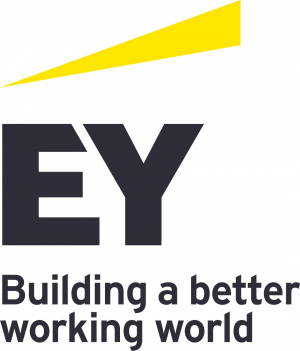Interview with Paul Venables of Hays Global
13.08.2014Company: Hays Czech Republic s.r.o.
Paul Venables has achieved what many up-and-coming finance professionals would see as the ultimate career goal: CFO of a FTSE 350 listed company. He is one of Hays’ two executive directors – along with CEO Alistair Cox. Paul trained as a chartered accountant with Deloitte, Haskins & Sells before moving into industry with logistics company Ocean Group, later known as Exel plc. There he held a range of finance and general management roles. He was appointed CFO of Hays in May 2006.
Q. When did you decide you wanted to become a finance director?
A. Training in audit, you get a fabulous opportunity to meet lots of senior business leaders and understand the variety and challenge of the role. But if you are a ‘doer’ and you want to achieve things, it often leads you out of the profession and into business. I stayed with Exel because it was a highly acquisitive group run by a superb CEO, which created lots of opportunities for me to do roles in finance and general management. After my last role as a managing director, a deputy FD role was created. I took that with the clear desire to become a group FD.
Q. Which skills does an FD need?
A. You must be a very good financial analyst and possess technical skills and knowledge of accounting standards. You also need to have a good understanding of tax and treasury. On top of that, you need a strong work ethic and to be able to develop the people working for you. I spend a lot of time with the people who work for me. Nobody’s going to hire you simply for your ability to add up the numbers. Clearly you’re responsible for all aspects of finance, but you’re here to add commercial value and support the Chief Executive in running the business.
Q. Have you ever worked abroad?
A. I’ve done three stints abroad. I spent four years in the US while I was at Deloitte. Then I spent a lot of time in Asia with Exel, which gave me a good cultural understanding of Asian business practices and the differences between various Asian countries. I was also based in Amsterdam as managing director of a number of businesses. Understanding different nationalities and knowing how to get to the right decisions is a key skill to develop.
Q. Besides finance, what other responsibilities do you have?
A. I have board responsibility for investor relations and IT. Investor relations sits naturally with finance because you need to understand the business, operations and numbers. IT is fundamental to a business but, as a finance person, you have to invest a lot of time in understanding it and have a great IT director whose judgment you can trust, which we have at Hays.
Q. What’s the best thing about being an executive director?
A. Having the independence to get on and do things.
Q. What is your advice for a would-be FD?
A. To have a successful career in a highly operational business, you need to add commercial value. Invest time in understanding the commercial drivers of the business and walk the floor. Develop a good, open communication style. For a finance person, being able to communicate well can be the difference between being average and being successful. And don’t worry about making mistakes. If you get 80% of business decisions right quickly and 100% of ethical decisions right, you’ll have a successful career. Finally, try to read the Financial Times every day. I can’t stress enough the importance of that. You need to understand the drivers of the economy and business.
Q. How do you unwind after a stressful day?
A. I don’t have many stressful days. There’s a difference between stress and pressure. But at the weekends I like to go to live events, whether they are concerts or sports matches. There’s nothing like screaming yourself hoarse while you’re supporting your team. It’s very important to have an outlet – mine are Henley Rugby Club and Aston Villa.







